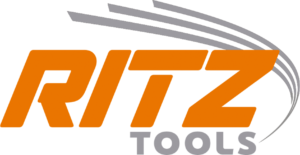
The Evolution of Electrical Work
Modern Demands and Challenges Electrical work has come a long way, with new technologies and safety standards driving the need for modern lineman tools.
In recent years, the electrical industry has seen significant advancements, driven by the demands of our ever-connected world. The tools of the trade have evolved to meet these challenges, ensuring that electrical professionals can work efficiently, safely, and effectively. In this blog post, we’ll explore the must-have lineman tools for modern electrical work.
Safety First: Personal Protective Equipment (PPE)
Before delving into specific tools, let’s emphasize the importance of personal protective equipment (PPE) in electrical work.
Safety is paramount in the electrical industry. Electricians and lineworkers must be equipped with PPE to protect themselves from electrical shocks, burns, and other hazards. Essential PPE includes insulated gloves, safety glasses, hard hats, and fire-resistant clothing. Without proper PPE, no electrical task should be undertaken.
Voltage Testing and Detection Tools
Accurate voltage testing and detection are crucial for identifying live electrical circuits and ensuring that they are de-energized before work begins.
- Voltage Testers: These handheld devices determine if a circuit is live by detecting voltage. They come in various forms, including non-contact voltage testers and digital multimeters.
- Circuit Tracers: Ideal for tracing wires and identifying circuit breakers, circuit tracers help electricians pinpoint specific electrical paths in complex systems.
Essential Hand Tools for Electrical Work
A lineman’s hand tools are their trusty companions, facilitating a range of tasks in electrical work.
- Wire Strippers: These handy tools help remove insulation from electrical wires without damaging the conductors, ensuring reliable connections.
- Pliers: Needle-nose pliers, side-cutting pliers, and lineman’s pliers are indispensable for gripping, bending, and cutting wires.
- Screwdrivers: Linemen need a variety of screwdrivers, including flathead and Phillips head, to work with different types of screws and terminals.
- Wire Crimpers: Crimping tools are used to create secure connections between wires and terminals, preventing electrical faults.
- Cable Cutters: Designed to cut through thick cables and wires cleanly, cable cutters are essential for lineworkers dealing with heavy-duty installations.
Power Tools for Efficiency and Precision
Modern electrical work often requires power tools to save time and ensure precision.
- Cordless Drills: Cordless drills make quick work of drilling holes and driving screws, enhancing efficiency on the job site.
- Reciprocating Saws: When it comes to cutting through conduit, pipes, and other materials, reciprocating saws provide the necessary speed and control.
- Hydraulic Crimping Tools: For larger wire crimping tasks, hydraulic crimping tools offer superior strength and accuracy.
Equipped for Success in Modern Electrical Work
The electrical industry continues to evolve, with new technologies and safety standards shaping the way electricians and lineworkers approach their tasks. To excel in this dynamic field, professionals must have the right tools at their disposal.
From voltage testers to power drills, lineman tools for electrical work have adapted to meet modern demands for efficiency, precision, and safety. However, it’s essential to remember that safety always comes first, and appropriate PPE should be worn at all times.
By investing in the must-have lineman tools outlined in this article, electrical professionals can confidently tackle the challenges of the modern electrical landscape, ensuring that homes, businesses, and industries remain powered and connected.
What are the essential lineman tools for electrical work?
Essential lineman tools for electrical work include voltage testers, wire strippers, pliers (such as needle-nose and lineman’s pliers), screwdrivers, wire crimpers, cable cutters, cordless drills, reciprocating saws, and hydraulic crimping tools. These tools help electricians perform various tasks safely and efficiently.
How do I choose the right voltage tester for electrical work?
When choosing a voltage tester, consider factors like the type of work you’ll be doing and your budget. Non-contact voltage testers are great for quick checks, while digital multimeters provide more detailed information. Always ensure that your chosen tester is rated for the voltage levels you’ll be working with to maintain safety.
What is the importance of personal protective equipment (PPE) in electrical work?
PPE is crucial in electrical work to protect workers from electrical hazards. It includes insulated gloves, safety glasses, hard hats, and fire-resistant clothing. PPE acts as a barrier against electrical shocks, burns, and other potential dangers, ensuring the safety of the lineworker.
Are there any specialized tools required for high-voltage electrical work?
Yes, for high-voltage electrical work, linemen may require specialized tools such as high-voltage insulating gloves, insulated tools, and voltage-rated equipment. These tools are designed to handle the higher voltage levels safely and are essential for working on electrical systems with increased risk.
Where can I find quality lineman tools for electrical work?
Quality lineman tools can be found at various places, including hardware stores, electrical supply stores, and online retailers. Ritz Tools is a reputable manufacturer and supplier known for its high-quality lineman tools. You can explore their product catalog online or visit authorized dealers to purchase reliable tools for electrical work.


